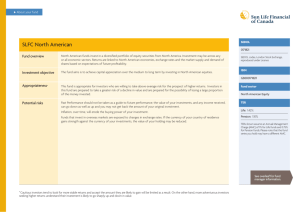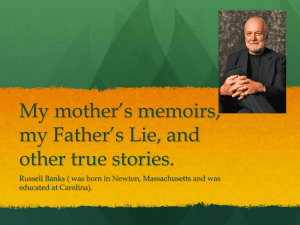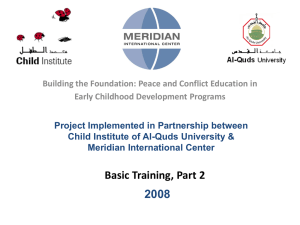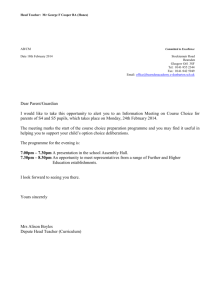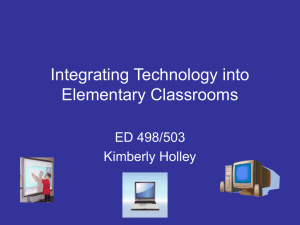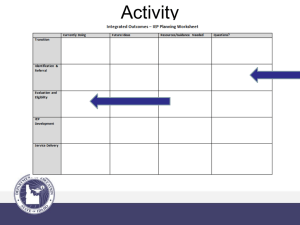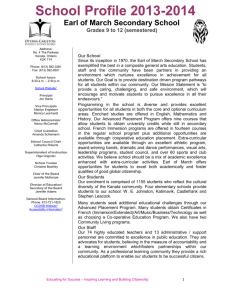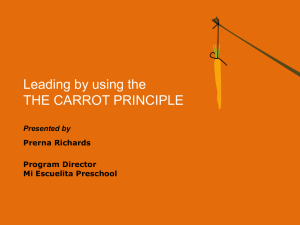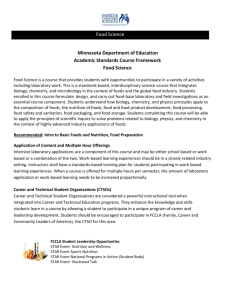OUTCOME - Alliance for Early Success
advertisement
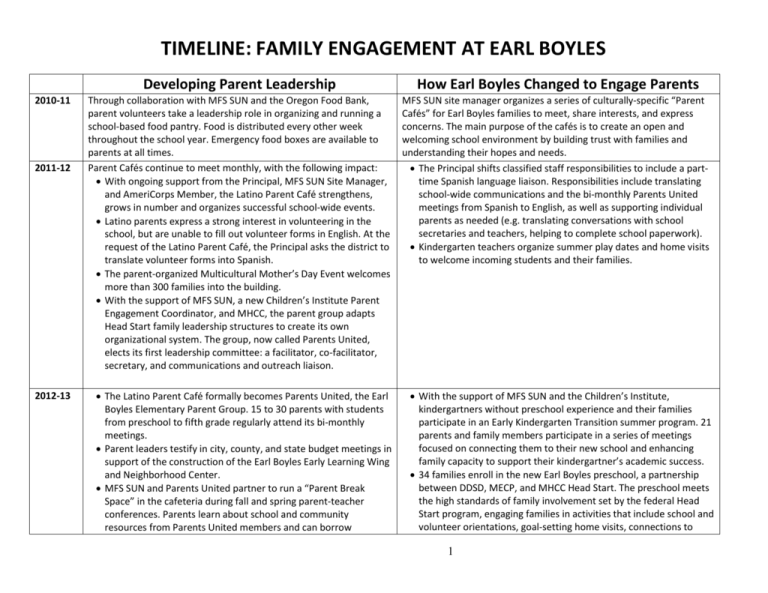
TIMELINE: FAMILY ENGAGEMENT AT EARL BOYLES Developing Parent Leadership 2010-11 2011-12 2012-13 Through collaboration with MFS SUN and the Oregon Food Bank, parent volunteers take a leadership role in organizing and running a school-based food pantry. Food is distributed every other week throughout the school year. Emergency food boxes are available to parents at all times. Parent Cafés continue to meet monthly, with the following impact: With ongoing support from the Principal, MFS SUN Site Manager, and AmeriCorps Member, the Latino Parent Café strengthens, grows in number and organizes successful school-wide events. Latino parents express a strong interest in volunteering in the school, but are unable to fill out volunteer forms in English. At the request of the Latino Parent Café, the Principal asks the district to translate volunteer forms into Spanish. The parent-organized Multicultural Mother’s Day Event welcomes more than 300 families into the building. With the support of MFS SUN, a new Children’s Institute Parent Engagement Coordinator, and MHCC, the parent group adapts Head Start family leadership structures to create its own organizational system. The group, now called Parents United, elects its first leadership committee: a facilitator, co-facilitator, secretary, and communications and outreach liaison. The Latino Parent Café formally becomes Parents United, the Earl Boyles Elementary Parent Group. 15 to 30 parents with students from preschool to fifth grade regularly attend its bi-monthly meetings. Parent leaders testify in city, county, and state budget meetings in support of the construction of the Earl Boyles Early Learning Wing and Neighborhood Center. MFS SUN and Parents United partner to run a “Parent Break Space” in the cafeteria during fall and spring parent-teacher conferences. Parents learn about school and community resources from Parents United members and can borrow How Earl Boyles Changed to Engage Parents MFS SUN site manager organizes a series of culturally-specific “Parent Cafés” for Earl Boyles families to meet, share interests, and express concerns. The main purpose of the cafés is to create an open and welcoming school environment by building trust with families and understanding their hopes and needs. The Principal shifts classified staff responsibilities to include a parttime Spanish language liaison. Responsibilities include translating school-wide communications and the bi-monthly Parents United meetings from Spanish to English, as well as supporting individual parents as needed (e.g. translating conversations with school secretaries and teachers, helping to complete school paperwork). Kindergarten teachers organize summer play dates and home visits to welcome incoming students and their families. With the support of MFS SUN and the Children’s Institute, kindergartners without preschool experience and their families participate in an Early Kindergarten Transition summer program. 21 parents and family members participate in a series of meetings focused on connecting them to their new school and enhancing family capacity to support their kindergartner’s academic success. 34 families enroll in the new Earl Boyles preschool, a partnership between DDSD, MECP, and MHCC Head Start. The preschool meets the high standards of family involvement set by the federal Head Start program, engaging families in activities that include school and volunteer orientations, goal-setting home visits, connections to 1 TIMELINE: FAMILY ENGAGEMENT AT EARL BOYLES academic resources to support children’s academic goals. Parents United continues to grow, integrating non-Latino members, and organizing school-wide events for families and children. The Parents United Let’s Hear it for Kids! Festival to celebrate the Day of the Child welcomes almost 500 families to the building. With support from MFS SUN and the Children’s Institute, Parents United members participate in a summer leadership retreat facilitated by the Multnomah County Community Capacitation Center. They develop facilitation and mediation skills, as well as draft a mission and vision for their group. 2013-14 Programming has evolved so that parent leaders do most of the planning and the group is cohesive and strong. Parents United now plans two big events each year, and one fundraiser. The funds would go to parents who cannot afford to buy supplies. In this year’s Rose Parade, parents will distribute books, not candy, as they parade. Early Works governance teams are created and intentionally include parents as partners at all levels to guide policy and program development. Parent leaders are part of the Early Works policy steering committee, and are helping form the Early Works health community needs assessment. social services, and parent meetings. The team of teachers and support staff working with preschool students meets on a weekly basis to discuss how to best support the success of students and their families. All teachers, preschool to 5th grade, organize fall curriculum nights to explain grade-level standards to parents. To help remove barriers to involvement, MFS SUN provides childcare and DDSD provides language interpreters. The Earl Boyles Family Engagement Committee, consisting of parents, teachers, and support staff, partners with Parents for Public Schools to organize College Starts NOW. Approximately 100 parents participate and 100% of them say it was helpful. In a spring 2013 survey, 91% of parents said they feel welcome at the school. Continuation of Early Kindergarten Transitions program, preschool family support, curriculum nights, and College Starts NOW conference. Multnomah County Project Linkages, MFS SUN, MHCC Parents as Teachers, Self Enhancement Inc., and Children’s Institute partner to offer a shared professional development experience for teachers, parents, and childcare providers focused on executive functions and early childhood development (Mind in the Making). Earl Boyles Early Learning Wing and Neighborhood Center breaks ground! When complete, the wing will include a space specifically for families and community members. Families are surveyed through a Community Health Assessment process to identify services that should be offered in the new space. 2

